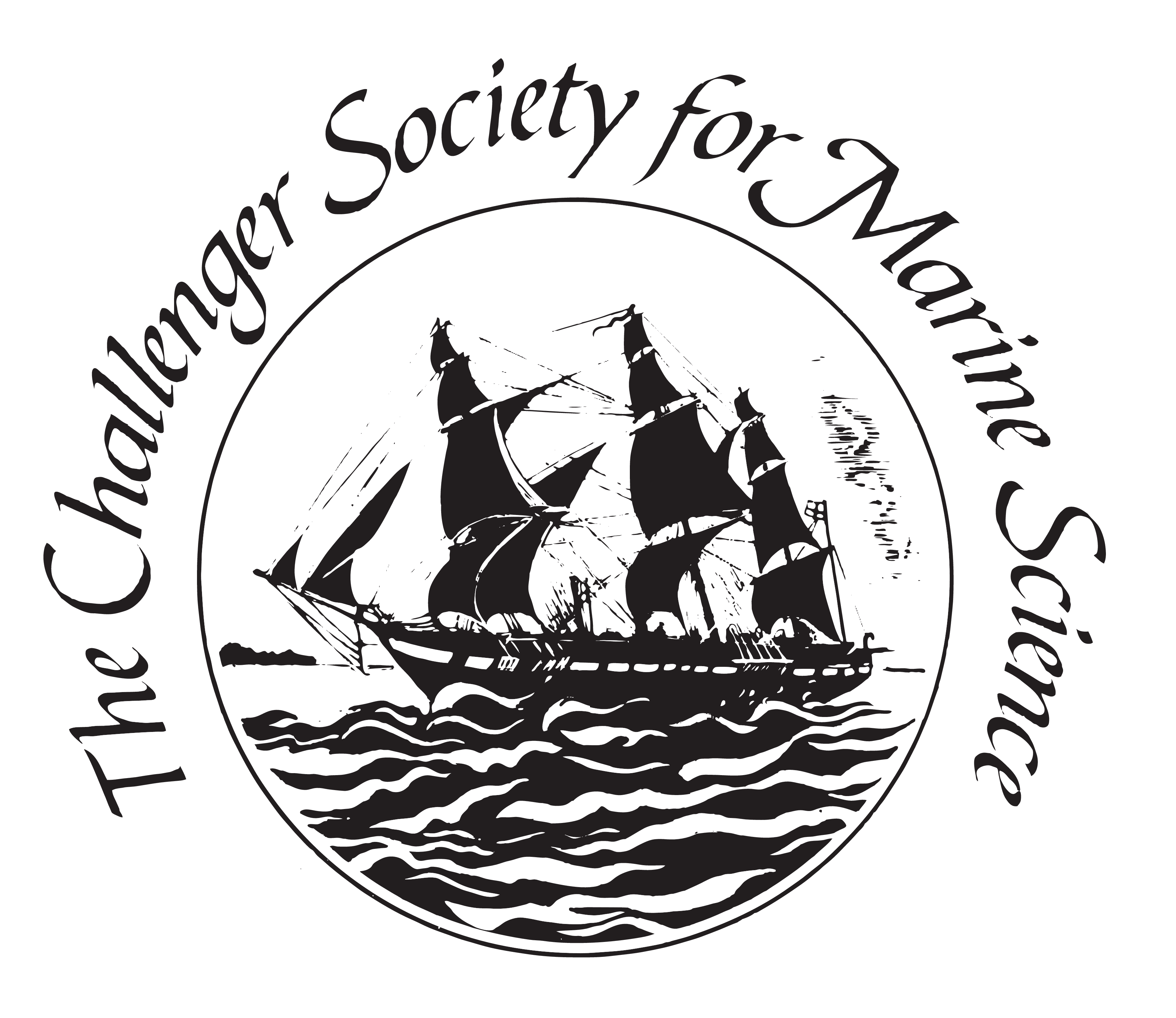Prospectus 2013
A Prospectus for UK Marine Sustained Observations

17 September 2013 - The Royal Society
The Challenger Society for Marine Science and the UK Scientific Committee for Oceanic Research (SCOR) held a one day meeting at The Royal Society, Carlton House Terrace, London SW1 on 17 September 2013.
Sustained observations provide the backbone for many national and international marine science and monitoring programmes e.g. Atlantic Meridional Transect (AMT), Continuous Plankton Recorder (CPR) survey, RAPID-WATCH, Partnership for Observation of the Global Ocean (POGO), Intergovernmental Panel on Climate Change (IPCC). Funding for these observations is often fragile as they require long term commitment. We asked seven early to mid-career scientists to celebrate the UK’s history of sustained observations of the ocean and reflect on the impact these observations have had on their field of science as well as in other areas. Each speaker demonstrated the international importance of UK sustained observations and presented creative ways to develop and use sustained observations of the ocean.
The one day meeting featured an interdisciplinary series of talks and discussion by some of the UK’s foremost early to mid-career scientists, alongside an overview of UK sustained observations by Prof. Nicholas Owens (UK SCOR) and an international perspective by Dr. Nicholas Bates (Bermuda Institute of Ocean Sciences).
Each speaker addressed questions such as:
- What are the critical scientific problems that can now be addressed with long time series of sustained observations?
- What is your vision for sustained observations in the future?
- How will technological advances change sustained observations?
The meeting concluded with a ‘Question Time’ style discussion session chaired by Professor Nicholas Owens (SAHFOS), where Professor Laurence Mee (SAMS), NOC director Professor Ed Hill, Professor Karen Heywood (UEA) and Dr David Mills (Cefas) fielded audience questions.
Did you miss the Prospectus?
Re-live the day with our Storify: http://storify.com/challengersoc/challenger-society-prospectus-2013
Prospectus for UK Marine Sustained Observations - Programme
0900 Delegates arrive and register. Tea/coffee
0930 Prof. Hilary Kennedy, President of the Challenger Society for Marine Science
Welcome and context for the meeting
0940 Prof. Nicholas Owens, Sir Alister Hardy Foundation for Ocean Science
Sustained UK Marine Observations: Where have we been? Where are we now? Where are we going? abstract
1020 Dr. Eleanor Frajka-Williams, University of Southampton,
Sustaining observations of an unsteady ocean circulation abstract
1100 Tea/coffee
1120 Dr. Nick Dunstone, Met Office Hadley Centre
Climate modelling and prediction abstract presentation
1200 Dr. Stephanie Henson, National Oceanography Centre, Southampton
Slow science: the value of long ocean biogeochemistry records abstract
1240 Dr. Nova Mieszkowska, Marine Biological Association
In it for the long run: the role of time-series in tracking impacts of environmental change in marine food webs abstract
1320 Lunch
1420 Dr. Mark Tamisiea, National Oceanography Centre, Liverpool
Measuring the boundaries of sea level abstract
1500 Dr. Povl Abrahamsen, British Antarctic Survey
Sustaining observations in the polar oceans abstract
1540 Tea/coffee
1600 Dr. Ian Mitchell, Joint Nature Conservation Committee
How do we tell policy-makers that marine biodiversity is “on target” or “missing the mark”? abstract presentation
1640 Dr. Nicholas Bates, Bermuda Institute of Ocean Sciences
International perspectives on sustained ocean observations and open ocean time-series abstract
1720 Panel discussion: A strategy for UK marine sustained observations: objectives, obstacles and solutions
Panel chair:
Prof. Nicholas Owens, Sir Alister Hardy Foundation for Ocean Science
Panel members:
Prof. Karen Heywood, University of East Anglia
Prof. Laurence Mee, Scottish Association for Marine Science
Prof. Ed Hill, NOC, Southampton
Dr David Mills, Cefas
1820 - 1900 Drinks reception for all at meeting
Press release for the Prospectus
Questions about the meeting can be addressed to members of the organising committee:
Dr Clare Postlethwaite (cfpo@bodc.ac.uk)
Dr Anna Hickman (A.Hickman@noc.soton.ac.uk)
Dr Abigail McQuatters-Gollop (abiqua@sahfos.ac.uk)
Latest News
Royal Society Publishing Photography Competition 2025
Please see a message from the Royal Society below:
We are delighted to announce that the 2025 Competition is now open for entries until 15 August for a chance to win £1000! The competition celebrates the power of photography in conveying the wonder of science happening all around us and photographs can be submitted in the categories of: Astronomy, Behaviour, Earth Science and Climatology, Ecology and Environmental Science, and Microimaging.
The competition is free to enter and open to anyone studying or working in science at graduate level or above. Category winners will receive a one-year membership to the Royal Photographic Society and the overall winner will receive a grand prize of £1,000. Find out more: https://bit.ly/RSPphotocomp
October 2025 MEDIN Workshop: Marine Data Management, Governance and the MEDIN toolset
The Marine Environmental Data and Information Network (MEDIN) are pleased to announce that registration is now open for the next occurrence of our popular free online training workshop: ‘Marine Data Management, Governance and the MEDIN toolset’ on the 13th – 17th October 2025 on OceanTeacher Global Academy.
Marine Data Management, Governance and the MEDIN toolset
The Marine Environmental Data and Information Network (MEDIN) and OceanWise are delighted to invite you to attend our popular free online training workshop: ‘Marine Data Management, Governance and the MEDIN toolset’ on the 19th – 23rd of May 2025.
